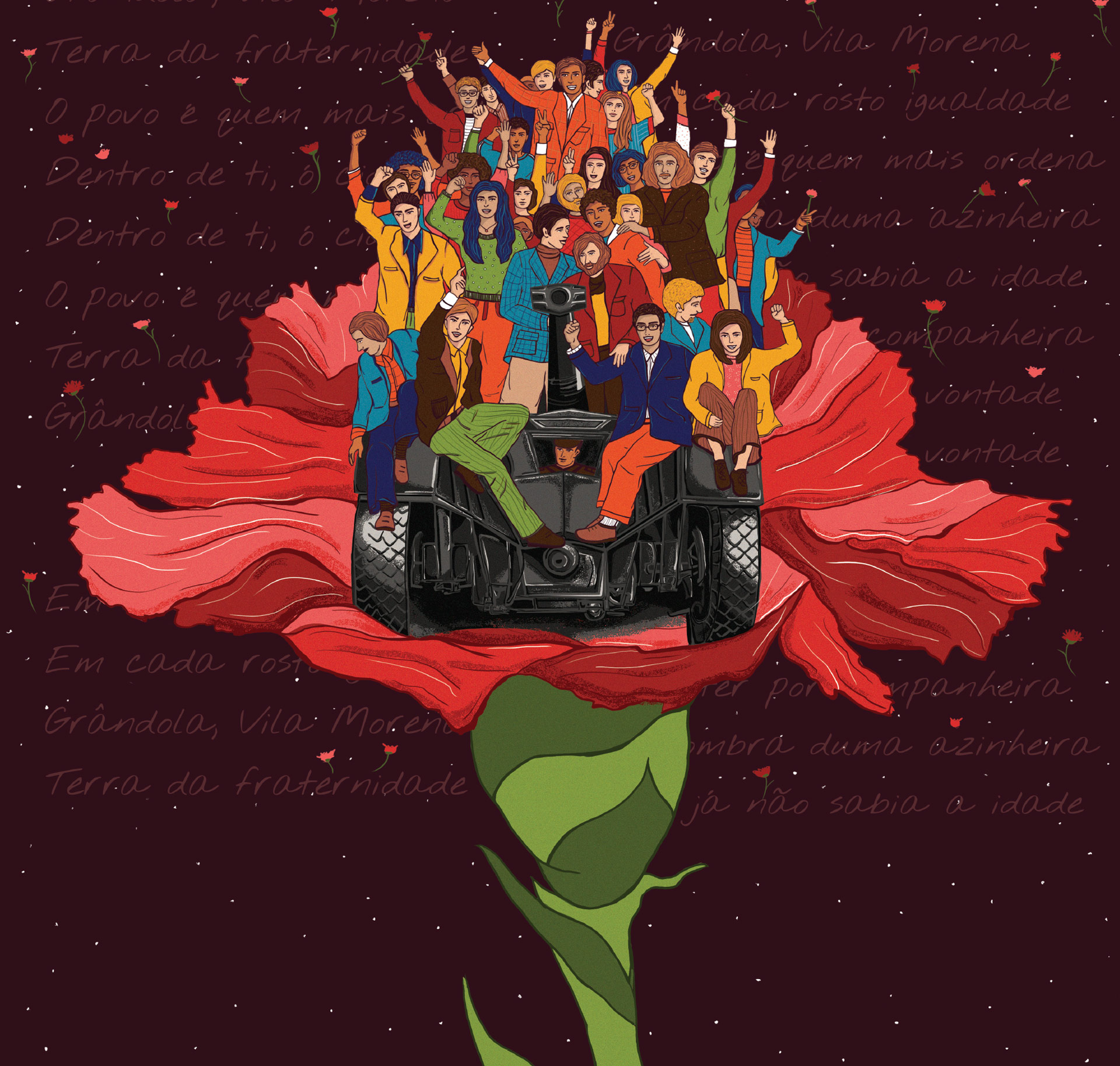ESP – ENG

The Carnation Revolution of April 25, 1974 marked a historic milestone in the struggle for democracy and social justice in Portugal.
The insurrection put an end to a nearly 50 year-old dictatorship, under António de Oliveira Salazar and then Marcelo Caetano, marked by deep poverty, inequality, repression and a cruel colonial policy. It was the result of decades of resistance and the wear and tear caused by the wars of independence in Angola, Guinea-Bissau and Mozambique.
One of the most emblematic moments of the revolution was the radio broadcast of the song «Grândola, Vila Morena» by singer-songwriter José Afonso, which served as a signal for the rebellious officers, mostly captains, to take to the streets of Lisbon. Soon the people came out as well, uniting in a clamor for freedom and democracy.
The uprising was named after the red carnations that the population placed on the rifles, thus creating the symbol of a peaceful rebellion. A feat, which almost without bloodshed, put an end to almost five decades of fascism in Portugal.
Under the slogan «O povo unido jamais será vencido,» the Carnation Revolution ushered in a transition to a democratic system with the creation of a new constitution, the democratization of fundamental rights such as health and education, and the establishment of labor rights for women.
The Carnation Revolution transformed Portugal but also inspired democratic movements in other countries. In particular, it paved the way for the last African independences. And although many of the advances it brought about have been undermined or reversed, its legacy endures as an example of the transformative power of the unity and determination of the people.

Click here to download the printable version of the calendar and hang it on your wall.
Text: Andreína Chávez. Artwork: América Latina Rodríguez.
Pingback: Revolución de los Claveles - Utopix
Pingback: Utopix 2024 - Utopix